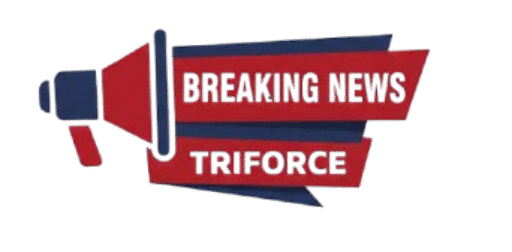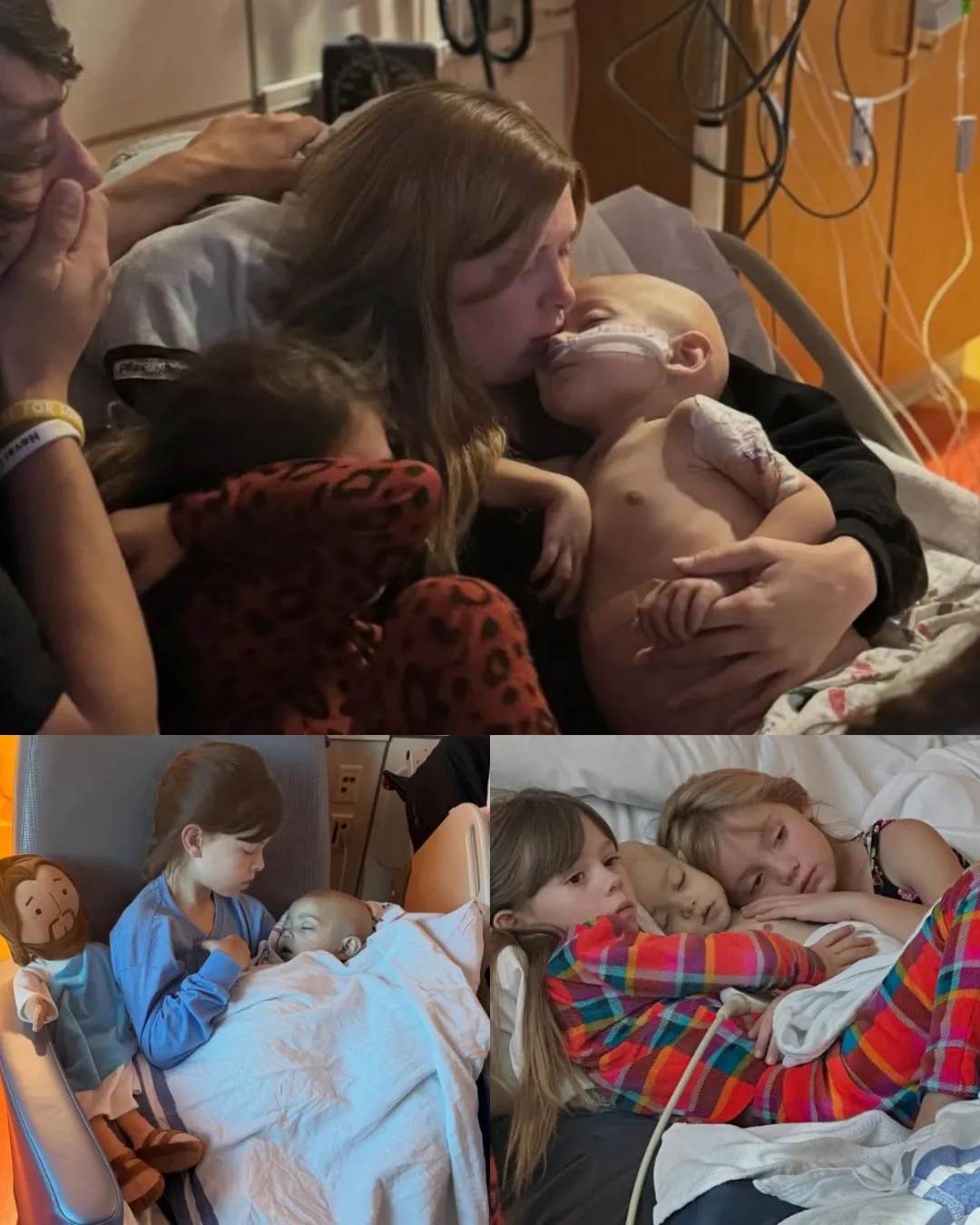There are stories that split the world in two — the life that came before, and the silence that follows after.
The story of Leilani Dream Burley is one of those.
Her name was a prayer — Dream — and for six brief years, that’s exactly what she was: a living dream. A child whose laughter filled her grandmother’s kitchen, whose tiny feet pattered across floors too large for her, whose favorite word was “why,” because she wanted to understand everything.
And then, one night, that laughter stopped.
What happened in the hours that followed still feels too cruel to speak aloud — a horror wrapped in disbelief, a betrayal so deep it left an entire community gasping for air.
Because the person who ended Leilani’s life wasn’t a stranger.
It was the man who helped bring her into the world.
A Night That Should Have Been Ordinary
It began like any other Sunday evening.
Leilani’s grandmother waited by the window, expecting to see headlights sweep across the driveway. Her son, Jayveyon Burley, had gone to pick up his two young children from Long Beach — a trip that should have ended with hugs, pajamas, and bedtime stories.
When he returned home, only one child climbed out of the car.
The grandmother’s heart sank.
“Where’s Leilani?” she asked.
Jayveyon mumbled something — a half-answer, an evasion — and disappeared into his room. But something was wrong. A mother’s instinct, a grandmother’s intuition — they both felt it immediately.
Hours later, panic replaced confusion. Leilani was nowhere to be found.
Her grandmother called the police.
Her mother, Marissa, began driving frantically through the night, calling hospitals, shelters, anyone who might have seen her little girl.
But deep down, she already knew the truth.
The Call No Mother Should Ever Receive
Just before dawn, the phone rang.
Authorities had found a small body in the Los Angeles River, near an overpass known for its stillness at night and its sharp drop to the water below.
The child was dressed in pink.
She had been thrown from the bridge.
When Marissa arrived at the scene, she refused to believe it at first. She screamed her daughter’s name until her voice broke, until there was nothing left to scream with.
And then — silence.
A silence so heavy that it hung over the city for days.
The Child Who Never Stopped Smiling
To know Leilani was to know sunshine.
She loved animals, princess dresses, and the color purple. She liked to dance in the kitchen, her curls bouncing, her laughter filling the air like wind chimes.
Her favorite song was “You Are My Sunshine.”
Her mother sang it to her every night before bed.
“She was my reason for everything,” Marissa said later, her voice trembling. “She was pure joy. She was my heart walking around outside my body.”
Friends and neighbors described Leilani as the kind of child who made people believe in goodness again. The one who offered her snacks to other kids on the playground, who picked flowers for her teacher even when they were weeds.
“She was only six,” one family friend said softly, “but she already made the world better.”
The Arrest
When police questioned Jayveyon, his story fell apart almost immediately.
Surveillance footage, inconsistencies in his timeline, and witness accounts led investigators to him.
He was arrested and charged with murder and assault on a child causing death.
The community erupted in disbelief. How could a father do something like this? What kind of darkness could exist behind a familiar smile?
Even seasoned officers described the case as one of the most devastating they had ever seen.
“There are crimes you can’t unsee,” one investigator said. “This was one of them.”
But in the months that followed, the case took a shocking turn — one that reopened wounds that had barely begun to heal.\
The Verdict That Broke a City
When the trial began, Marissa sat in the front row every day, clutching a small stuffed animal that had belonged to her daughter.
She listened as lawyers debated the meaning of “intent.” She watched as evidence was dissected, timelines questioned, and motives twisted.
The defense argued that Jayveyon hadn’t meant to kill his daughter — that it was an “impulsive act,” born of anger and instability, not malice.
The prosecution fought back, presenting evidence that showed premeditation — a father who drove to that bridge with purpose.
And then, one morning, after weeks of testimony, the jury filed back into the courtroom.
“Not guilty,” the foreman read aloud.
The room fell silent.
For a moment, no one moved. Then came the sound of sobbing — raw, heart-wrenching, the sound of a mother whose world had ended twice.
Outside, the courthouse steps filled with outrage. People demanded answers. Reporters swarmed. Hashtags trended. But none of it mattered. The man accused of throwing his daughter off a bridge walked free.
And a child named Dream was gone.
The Weight of Injustice
In the weeks that followed, grief turned into something heavier — the kind of sorrow that doesn’t just live in one family, but in an entire community.
Mothers held their children tighter.
Fathers stayed silent.
And everywhere, people asked the same question: What does justice mean, if it doesn’t mean this?
Legal experts debated the verdict, citing procedural errors, insufficient evidence, and the complexities of mental health defenses. But to the people who loved Leilani, none of that mattered.
Because no legal technicality could rewrite what happened that night.
No courtroom could explain how a father could stand on a bridge, look at his child — and let go.
A Mother’s Promise
After the trial, Marissa withdrew from the public eye. For weeks, she barely left her room. But grief has a way of transforming — of finding purpose, even in the ruins.
One morning, she opened her laptop and began typing.
She started a blog called “For Dream”, dedicated to victims of child violence and the families left behind. In her first post, she wrote:
“They can take her from my arms, but not from my voice. I will keep saying her name until the world remembers her too.”
Her words spread quickly. Soon, parents from across the country began sharing their own stories — of loss, of fear, of resilience.
Her voice became their voice.
The Power of a Name
Leilani’s middle name, Dream, wasn’t chosen by accident. Her mother gave it to her because she believed her daughter was meant for something extraordinary — to remind people that even in hard times, dreams still matter.
And maybe, in some way, that prophecy came true.
Because in the aftermath of her death, “Dream” became a symbol — a call to protect the innocent, to question systems that fail them, to look closer when something feels wrong.
At her memorial, hundreds of people gathered by the riverbank where her small body had been found. They released balloons shaped like hearts and stars. Some carried sunflowers — her favorite.
As the wind carried them away, her mother whispered, “Fly, my Dream.”
The Bridge
There’s something haunting about bridges — the way they connect two worlds, two sides of something vast and unknowable.
For Marissa, that bridge became a line she can never cross back over.
She visits it sometimes — not because she wants to remember the horror, but because it’s where her daughter’s story demands to be told.
She brings flowers. She kneels. And she talks — softly, gently, like she used to when tucking Leilani into bed.
“Hi, baby,” she says. “I brought you pink ones today.”
The river rushes quietly beneath her. The city hums in the distance. And for a moment, it feels like maybe — just maybe — her daughter can hear her.
What Remains
In the end, there is no justice that can balance what was lost.
There are no words that can explain why some hearts turn to stone while others shatter from love.
But there is remembrance.
And there is faith — not in the system, not in fairness, but in the belief that love, once born, never truly dies.
Leilani’s story is not just about tragedy. It’s about how fragile innocence is, and how fiercely it must be protected.
Her mother still wears a necklace with her daughter’s name engraved on it. On the back, there are two words:
“Still Dreaming.”
Because even after everything — the trial, the loss, the nights that feel endless — Marissa refuses to let her daughter’s name be reduced to a headline.

The Child Named Dream
When people speak of Leilani now, they don’t talk about the river.
They talk about her laughter.
Her kindness.
The way she danced when no one was watching.
And maybe that’s how she wins — not in a courtroom, but in memory.
Because the man who threw her away may have been found not guilty, but the world will never forget what he did.
And every time someone says her name — softly, lovingly, like a prayer — she lives again.
Leilani Dream Burley.
A name that was more than a name.
A promise.
A light that even the darkest water couldn’t drown.





















